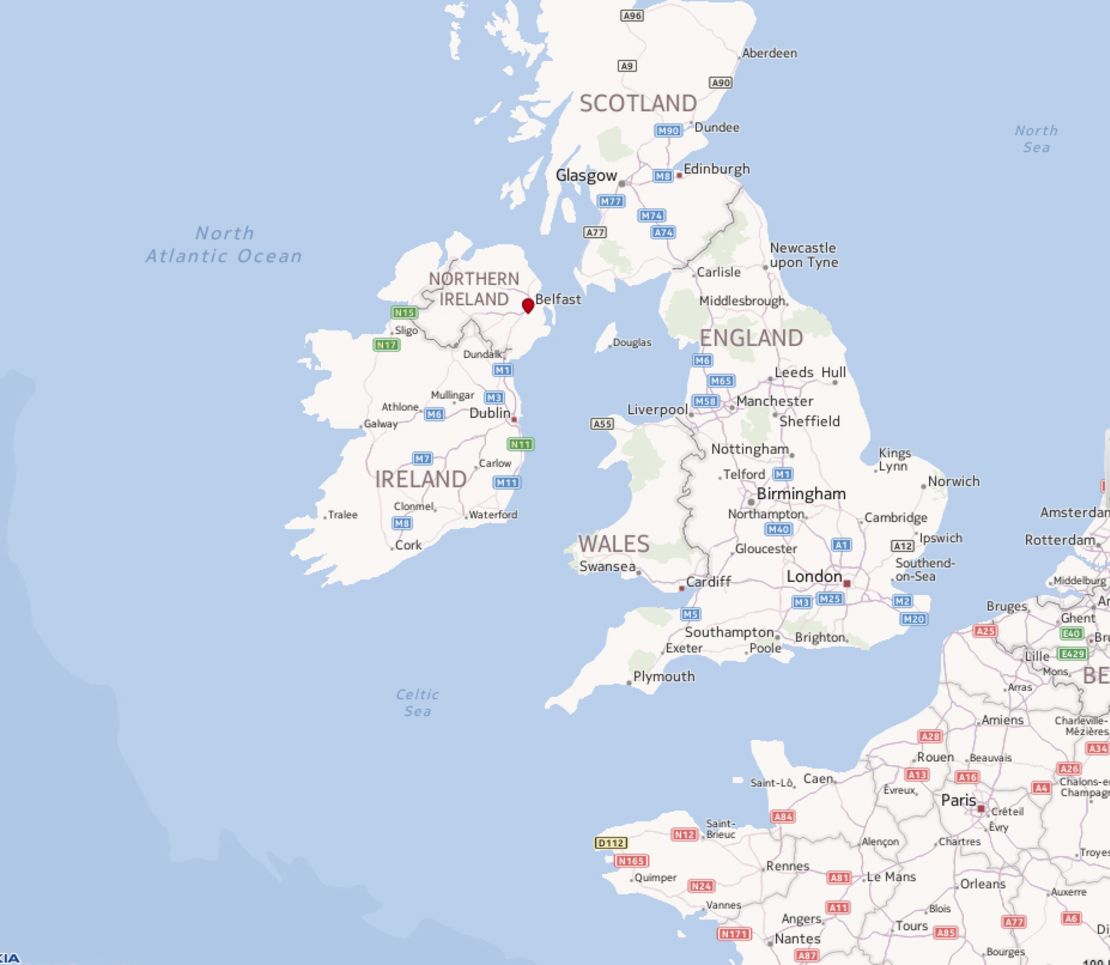Editor’s Note: Are you there? Share your story.
Story highlights
Police say 66 officers injured, 100 arrests made since protests started five weeks ago
The Union flag flew over Belfast City Hall for the first time since a controversial vote
It was raised to mark the birthday of the Duchess of Cambridge
Violent protests roil East Belfast for a sixth night, but are smaller than on previous nights
The Union flag was raised over Belfast City Hall on Wednesday morning for the first time since a vote last month to stop flying it year-round prompted violent protests in Northern Ireland.
The flag was flying because of the birthday of Prince William’s wife, Catherine – one of the designated days when the flag will still be flown. It was taken down again as planned Wednesday evening, a night after pro-flag protesters in East Belfast threw fireworks and petrol bombs at police.
Watch: Northern Ireland protests explained
However, the disorder was sporadic and on a smaller scale than on previous nights. Sixty-six officers have been injured and more than 100 people arrested since the protests started five weeks ago, the Police Service of Northern Ireland said Wednesday.

The leaders of the two main unionist political parties said on Tuesday they would hold a “Unionist Forum” on Thursday at Stormont to address underlying grievances peacefully.
The forum seeks “to engage with the entire unionist community and to address issues of concern. It will seek to channel unionist efforts through political means,” said First Minister Peter Robinson, of the Democratic Unionist Party, and Mike Nesbitt, of the Ulster Unionist Party.
It was not clear whether representatives for the protesters would attend.
Authorities have accused loyalist extremists of exploiting the December 3 decision by Belfast officials to end the century-old tradition of flying the Union Jack over City Hall year-round. A number of demonstrations are planned across Northern Ireland on Friday.
Read more: Political forum aims to stem N.Ireland violence
The British flag has long been a flashpoint between British loyalists and Irish nationalists, who want Northern Ireland to join the Irish republic.
The Belfast City Council vote followed a summer of heightened tensions between Northern Ireland’s Catholic and Protestant communities. Riots in September left dozens of police injured.
The majority of Ireland gained independence in 1921 following two years of conflict. But six of the nine counties of the province of Ulster chose to stay in the United Kingdom, eventually becoming Northern Ireland.
In the late 1960s, the conflict between mainly Protestant loyalists, who want Northern Ireland to remain part of the United Kingdom, and largely Roman Catholic nationalists, who want it to be reunited with the rest of Ireland, exploded into a political and sectarian war, known as “the Troubles.”
The three decades of ensuing violence between loyalists and the IRA claimed more than 3,000 lives, most of them north of the border. While the Good Friday Agreement of 1998, also known as the Belfast Agreement, effectively ended the conflict, distrust remains between Catholics and Protestants.
Under the terms of the accord, groups on both sides dumped their weapons, and members of Sinn Fein, the political affiliate of the IRA, now work with pro-British politicians in Northern Ireland’s power-sharing government.



